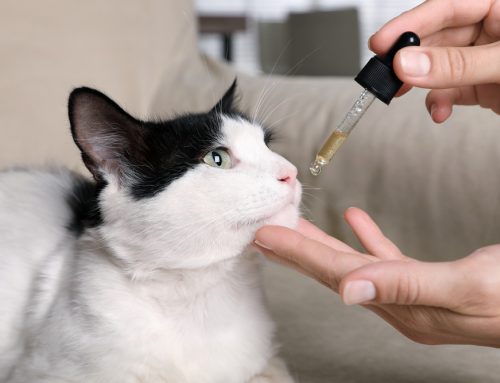Many pet owners, unfortunately, have not been educated on the importance of their furry friend’s dental health, yet it is the cornerstone of a pet’s entire well-being. Good oral health is vital for an overall healthy pet, as harmful bacteria can travel from the mouth to the heart, liver, and kidneys, causing widespread disease. The basis of good dental hygiene is routine, at-home preventive care, but the most dedicated at-home dental-care regimen cannot always overcome poor dental genetics and abnormal dentition, and pets need professional care, as well. But, with teamwork that involves our veterinary dental care and your home care, we can ensure your furry pal keeps a pearly white smile.
Professional dental care for your pet
Most pets will require professional dental care at some point in their lives, whether for a broken tooth, tooth-root abscess, retained deciduous teeth, or a dental cleaning to remove tartar accumulation. Professional dental care includes:
- Dental X-rays — Since as much as 60% of the tooth lies beneath the gumline, dental X-rays are critical for detecting dental disease. Without dental X-rays, hidden problems may lurk undiscovered, causing your pet needless pain.
- Routine dental cleanings — Your pet’s routine dental cleaning will be similar to your own dentist’s, with the addition of general anesthesia. To prevent fear, stress, and potential injury, we anesthetize our patients, which allows us to take diagnostic dental X-rays, clean and polish the teeth without causing your pet anxiety, and extract any diseased teeth without pain. We place an endotracheal breathing tube down your pet’s trachea to ensure she does not aspirate any debris into her lungs, and to keep her asleep and oxygenated. We scale off all the tartar, clean below the gumline, polish the teeth to remove microabrasions, smooth the surface to prevent adherence of plaque, and apply a fluoride treatment to aid in enamel health. While we clean your pet’s teeth, we also check for pockets around each tooth, which indicate potential infection, and search for problem areas that need immediate treatment, or monitoring for future issues.
- Veterinary monitoring — Although routine at-home care is an excellent way to monitor your pet’s oral health, we still like to check for potential problems with our trained eye. Early detection of gingivitis, gum overgrowth, tartar accumulation, or oral masses can prevent significant pain for your pet down the road, in addition to saving you money by treating a problem in its early stages.
- Treatment plan — Based on our findings, we will form a treatment plan designed to care for your pet’s oral health, whether it’s a routine cleaning, necessary extractions, or referral to a veterinary dental specialist. After completing your pet’s treatment, we will discuss her individual at-home, dental-care plan, which will help keep her healthy, and ideally prevent future issues.
At-home dental care for your pet

While we will gladly clean your four-legged friend’s teeth, we’d like to keep her teeth as healthy as possible with a good home-care routine. Stay on top of your pet’s oral health by:
- Establishing a toothbrushing routine — The gold standard of dental care is daily toothbrushing to attack plaque before it can harden into cement-like tartar. Training your pet to accept toothbrushing may be a slow process, but in time, and with plenty of rewards and a tasty pet-friendly toothpaste, your furry friend likely will come running at the sight of a toothbrush.
- Providing dental-health products — A wide variety of dental-health products, such as oral rinses, treats, chews, prescription diets, and water additives, will help in your quest to keep your pet’s mouth healthy. Always check for the Veterinary Oral Health Council’s seal of approval before making a purchase.
- Monitoring for dental-disease signs — Preventive care is the best medicine, especially for warding off painful dental conditions. Know the signs in your pet’s mouth that may indicate the presence of periodontal disease, such as:
-
- Red, inflamed gums
- Yellow or brown buildup on teeth
- Broken, loose, or missing teeth
- Bleeding gums
- Bad breath
Pets with dental disease can also have difficulty chewing, drop food from one side of the mouth, paw at the mouth, or appear sensitive when handled around the head.
By keeping a close eye on your pet’s oral health at home, and with routine veterinary treatment, together we can ensure your pet keeps her beautiful, shiny smile.
Is your pet suffering from bad breath? Clean up your furry friend’s mouth, for her sake—and yours—by calling us to schedule a dental cleaning.









Leave A Comment